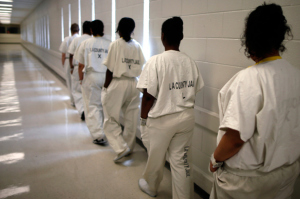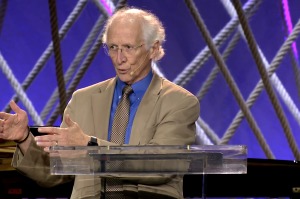Scripture-engaged Americans place higher importance on civic engagement, poll finds

Americans regularly engaged with Scripture place higher importance on civic engagement than their counterparts who are less engaged with the Bible, even as the religiously unaffiliated demonstrate higher levels of "pro-social behavior," a new poll finds.
The American Bible Society released the fourth chapter of the State of the Bible 2024 report last week, titled "Love in Action." The report's data is based on responses collected from 2,506 United States adults between Jan. 4 and 23, 2024, with an error margin of 2.73 percentage points. NORC at the University of Chicago performed the survey using its AmeriSpeak panel.
The latest installment examined respondents' embrace of traits and beliefs associated with civic responsibility and being a "good neighbor."
When asked if they viewed "maintaining awareness of civic and government issues" as either "important" or "very important," 54% of respondents answered in the affirmative. However, this number jumped to 66% among "Scripture Engaged" respondents.
The report defines Scripture-engaged respondents as those who score 100 or higher on the Scripture Engagement scale, which is based on questions examining "the frequency of Bible use and the impact and centrality [of] its message" on an individual's life.
About 51% of those in the "Movable Middle" — respondents who score between 70 and 99 on the Scripture Engagement Scale — place a premium on "maintaining awareness of civic and government issues," along with 52% of the "Bible Disengaged" who score less than 70%.
Similarly, a plurality (48%) of Scripture-engaged respondents believe that "advocating for civic and government policies" was either "important" or "very important" compared to 37% of the American public as a whole. Only 34% of those in the movable middle and 35% of the Bible-disengaged said the same.
The 42% of Scripture-engaged Americans who think "submitting to government leaders" is "important" or "very important" is much higher than the 16% of respondents overall, 15% of the movable middle and 8% of the Bible-disengaged who feel the same way.
"On every point — awareness, advocacy, and submission — the Scripture Engaged are far more apt to tout the importance of civic responsibility," the report reads. "We see little difference between the Movable Middle and the Bible Disengaged on awareness and advocacy, but the Scripture Engaged clearly place a higher value on these aspects of citizenship."
The researchers opine that Scripture-engaged Americans could be inspired by biblical passages like Romans 13, which discusses submission to governing authorities.
Additionally, Scripture-engaged Americans were more likely to agree "strongly" or "very strongly" with the importance of behaviors classified as "pro-social."
Fifty-five percent of the Scripture-engaged believe it is important to "befriend those of other races" compared to 33% of the Bible-disengaged and 31% of the movable middle.
A much higher share of the Scripture-engaged (40%) agree "strongly" or "very strongly" that it is important to "care for those in prison" than the Bible-disengaged (19%) and movable middle (18%).
A majority (53%) of the Scripture-engaged agree "strongly" or "very strongly" with the need to "advocate for the oppressed," along with 37% of the Bible-disengaged and 29% of the movable middle.
The differences between the three groups were less pronounced regarding the importance of befriending "those of other religions." Similar shares of the Scripture-engaged (46%) and Bible-disengaged (41%) see the importance of friendships with those of other religions, as do 31% of the movable middle.
Only on the importance of welcoming immigrants did a higher percentage of the Bible-disengaged (34%) agree "strongly" or "very strongly" than the Scripture-engaged (33%). As with all the other pro-social behaviors examined, the movable middle was the least likely to agree "strongly" or "very strongly" with the importance of welcoming immigrants (17%).
"From our research, we see that those who engage with Scripture place high importance on loving their neighbors, just as Jesus did," American Bible Society Chief Innovation Officer and State of the Bible Editor-in-Chief John Farquhar Plake said in a statement. "From advocating for the oppressed to befriending those of other races, these believers promote what we call pro-social behaviors."
The respondents classified as "nones" who do not identify with any particular religion demonstrated a higher adherence to "pro-social behaviors" than everyone else. Thirty-seven percent of "nones" see efforts to "welcome immigrants" as "important or very important" compared to 26% of all other respondents.
This phenomenon extends to the importance of befriending people of other races, where 45% of "nones" and 41% of all other respondents classify this behavior as "important or very important." At the same time, 43% of "nones" saw the importance of working to befriend someone of another religion compared to 37% of everyone else. Regarding advocating for the oppressed, 42% of "nones" characterize it as "important or very important," along with 35% of all other respondents.
Views on the importance of "care for the environment" differed most sharply between the two groups. A majority (61%) of "nones" characterize "care for the environment" as "important or very important" as opposed to just 48% of everyone else.
On the other hand, an equal percentage of "nones" and the remaining respondents (22%) see working to "care for those in prison" as "important or very important."
Noting that the religiously unaffiliated "also score high on their commitment to being good neighbors," Plake asked, "Could this be a shared value?"
"Perhaps if these unchurched 'nones' recognized how deeply some Christians care for their neighbors in these specific ways, they might find relationships with Christians to be more attractive and want to join in," he suggested.
Ryan Foley is a reporter for The Christian Post. He can be reached at: ryan.foley@christianpost.com





























